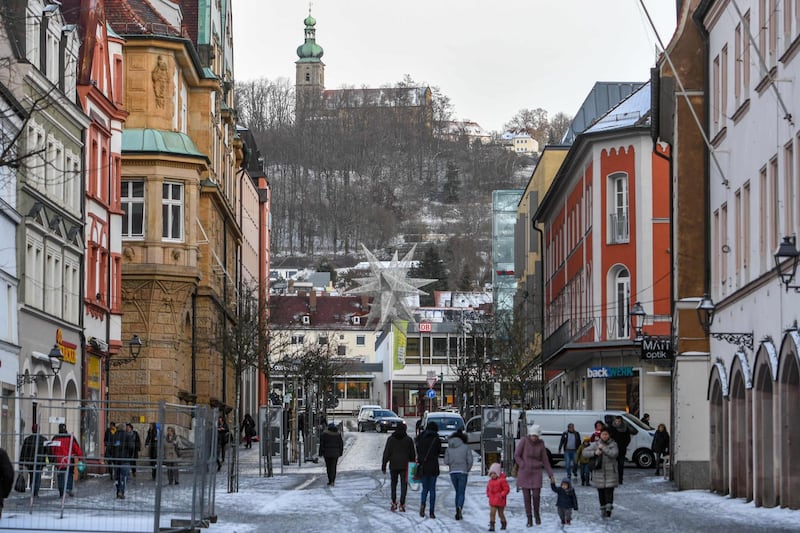A medieval town nestled in a part of Bavaria that is dotted with former iron ore mines, Amberg has rarely found itself in the spotlight.
That changed this month as controversy raged over an incident involving four teenage migrants who have been accused of injuring several people in unprovoked street assaults on New Year’s Eve.
The four suspects – of Iranian, Syrian and Afghan origin – have since become the object of yet another round of debate on immigration, amid calls to action from far-right groups. After the incident, reports of “neighbourhood defence groups” being rolled out by the ultra-nationalist National Democratic Party swamped the national and international press, while federal Interior Minister Horst Seehofer used the incident to call for harsher deportation laws.
Dazzled by the media attention, residents of Amberg are struggling to reconcile the media storm with the reality of their tranquil town.
According to local journalist Uli Piehler, “there is no relation between what happened and what was reported by the media”.
A picture posted by the NDP on Facebook – which portrays four party members donning red high-visibility jackets and marching through the streets of Amberg – was all the town has seen of the vigilantes, Piehler said.
Police told local media that they had found no evidence of the street patrols. Mayor Michael Cerny initially issued a warning but later took a step back and appealed for calm. Amberg, a town of 41,000 people, is home to fewer than 500 migrants and has so far been a model of integration that left little room for far-right opportunists.
An aid worker based in Amberg told The National that the far-right’s patrol was a publicity stunt.
“I have not seen any patrols on the streets,” she said.
“What happened is the NDP sent a couple of people from Nuremberg and then left.”
According to the social worker, the hype is the result of the media’s need for attention-grabbing headlines. “We are overwhelmed and shocked by the level of attention,” she said. “We do not understand what is going on.”
Heribert Prantl, editor of the Suddeutsche Zeitung newspaper, spoke of "catastrophic journalism" that magnified the events in Amberg in sensationalist reports. The reason behind this, he said, is a "sharpening fight for attention" in the press brought about by a rapid increase in the number of outlets, as well as social media.
NDP Bavaria representative Sascha Rossmuller claimed his party acted out of concern for the local population. “Crime rates are increasing across Germany, especially in the towns and regions where there is a lot of immigration,” he told The National.
“People want security, but we as a party are not able to guarantee that in the whole of Germany.”
Mr Rossmuller said the Amberg patrols, which lasted “two or three nights”, were the beginning of a bigger commitment in the Bavarian town.
“We need to co-ordinate with local people there and train those who want to take part in the patrols,” he said, admitting that the NDP patrols in Amberg had been sent from Nuremberg.
In the bigger urban centres, however, extremist parties have more freedom to manoeuvre and have already taken to the streets. Mr Rossmuller said the NDP conducts regular patrols in cities such as Chemnitz, among others, and is planning to expand this type of activity.
In Chemnitz, the federal government spoke of “vigilante justice” and people “hunting down” immigrants after a similar incident in August last year.
The four migrant teenagers – who did not live in Amberg but were in the town for New Year’s Eve – were arrested on January 5 and are in custody. They are said to have been drunk at the time of the attack, which took place near the train station. Twelve people were injured, including a Syrian woman, 46, who suffered life-threatening injuries.
The incident reignited an intense debate in Germany about immigration and particularly how the Muslim immigrant community can integrate.
Chancellor Angela Merkel’s government, which was harshly criticised for its open-door policy towards migrants, has been beset by infighting and plunging popularity as support for right-wing policies and populist parties continues to rise.






